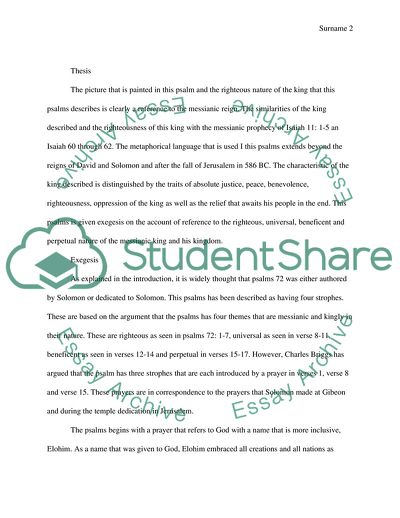Cite this document
(Exegesis and Theological Meaning of Psalms 72 Report Example | Topics and Well Written Essays - 1250 words, n.d.)
Exegesis and Theological Meaning of Psalms 72 Report Example | Topics and Well Written Essays - 1250 words. https://studentshare.org/religion-and-theology/1839809-write-5-pages-on-the-exegesis-and-theological-meaning-of-psalms-72-from-the-bible
Exegesis and Theological Meaning of Psalms 72 Report Example | Topics and Well Written Essays - 1250 words. https://studentshare.org/religion-and-theology/1839809-write-5-pages-on-the-exegesis-and-theological-meaning-of-psalms-72-from-the-bible
(Exegesis and Theological Meaning of Psalms 72 Report Example | Topics and Well Written Essays - 1250 Words)
Exegesis and Theological Meaning of Psalms 72 Report Example | Topics and Well Written Essays - 1250 Words. https://studentshare.org/religion-and-theology/1839809-write-5-pages-on-the-exegesis-and-theological-meaning-of-psalms-72-from-the-bible.
Exegesis and Theological Meaning of Psalms 72 Report Example | Topics and Well Written Essays - 1250 Words. https://studentshare.org/religion-and-theology/1839809-write-5-pages-on-the-exegesis-and-theological-meaning-of-psalms-72-from-the-bible.
“Exegesis and Theological Meaning of Psalms 72 Report Example | Topics and Well Written Essays - 1250 Words”. https://studentshare.org/religion-and-theology/1839809-write-5-pages-on-the-exegesis-and-theological-meaning-of-psalms-72-from-the-bible.


